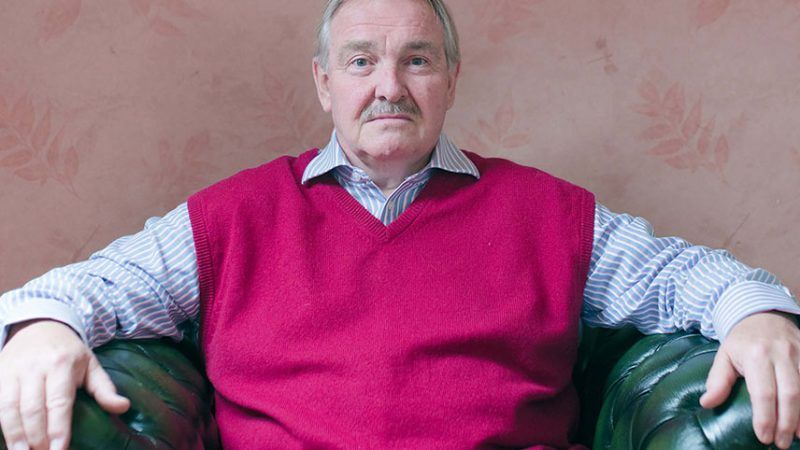Neuropsychopharmacologist David Nutt on Alcohol, LSD, and Getting Sacked for His Findings


The British psychiatrist and neuropsychopharmacologist David Nutt had reached arguably the pinnacle of his field as chairman of the government's Advisory Council on the Misuse of Drugs. Then in 2009 he was summarily dismissed from his position. In May, Reason TV's Zach Weissmueller sat down with Nutt to discuss his sacking, and what he's learned from the psychedelic research he continues to do at Imperial College London.
Q: What happened that caused you to lose your job?
A: We did an enormous amount of research into the comparative harms of drugs, and I discovered, somewhat to my surprise, that alcohol was actually the most harmful drug in the U.K. I started explaining to the government, "Our drug laws are wrong. Putting people in prison for cannabis possession is not fair, because alcohol is more dangerous." They did not want to hear that.
Q: You just completed some research on LSD in conjunction with the Beckley Foundation. Tell me about that.
A: It's a fascinating drug. In the 1950s and '60s it was going to solve the world's problems. The National Institute of Health in America funded 140 separate studies. Then as soon as it started being used recreationally, it suddenly got banned. We decided it was time to bite the bullet and do the first brain imaging study of LSD.
Q: You were quite literally looking at, "This is your brain on drugs." What is our brain on this particular drug?
A: Our brains are trained over decades to do things exactly the same way every day, every hour, every minute, every second. Those structures we thought were hardwired, but it turns out they're not hardwired. They can be disrupted by LSD. We think that explains why afterwards, people often feel different, and better, because the brain's been allowed to work in a slightly different way for the first time.
Q: What is the application of that?
A: It helps us make sense of why drugs like LSD can change the way people behave in the long term. The founder of [Alcoholics Anonymous], Bill Wilson, became a profound enthusiast for LSD. It works. People are much less likely to relapse back to drinking after they've had a psychedelic experience, because they can see there's a world out there which isn't all about the bottle.
Q: Do your brain scans offer any clue as to why psychedelics seem to offer some relief to those with conditions like depression and PTSD?
A: Psychiatric disorders exist because people cannot disengage. Depressed people keep thinking negative thoughts: "I made a mistake. I was a bad person." People with PTSD can't disengage from the memory and over time, those circuits in the brain become completely self-determining. They just go on and on and on, even if the person wants to stop them. I think the disruption of circuits, the breaking down of these regimented silos of function of the brain by psychedelics, can help people escape from those underlying disorders.
Q: Some critics might think, "Why study psychedelics? We have pharmaceuticals that are designed to treat these disorders."
A: The truth is, half of all people who are treated with antidepressants don't respond to the first dose. There are people who never respond. Disorders like alcoholism—response rates are like 10 percent, not 80 percent. So there's a huge unmet need.
Q: Are there any policy changes that would enable us to proceed even more quickly?
A: Oh yes: We've got to change the regulations. These drugs are all stuck in what's called Schedule I under the U.N. Conventions. We've got to get them in a schedule that allows scientists to work with them without being treated as if they're criminals.
Q: How would you envision these types of drugs being integrated into health care?
A: These drugs are not drugs you take every day to hold at bay your depression or your anxiety. These are drugs you use with a psychotherapist to change the way you deal with life. So I see them as being enormously powerful ways of bringing psychotherapy and medicine together.
This interview has been condensed and edited for style and clarity. See below for a video version.
This article originally appeared in print under the headline "Neuropsychopharmacologist David Nutt on Alcohol, LSD, and Getting Sacked for His Findings."


Show Comments (5)